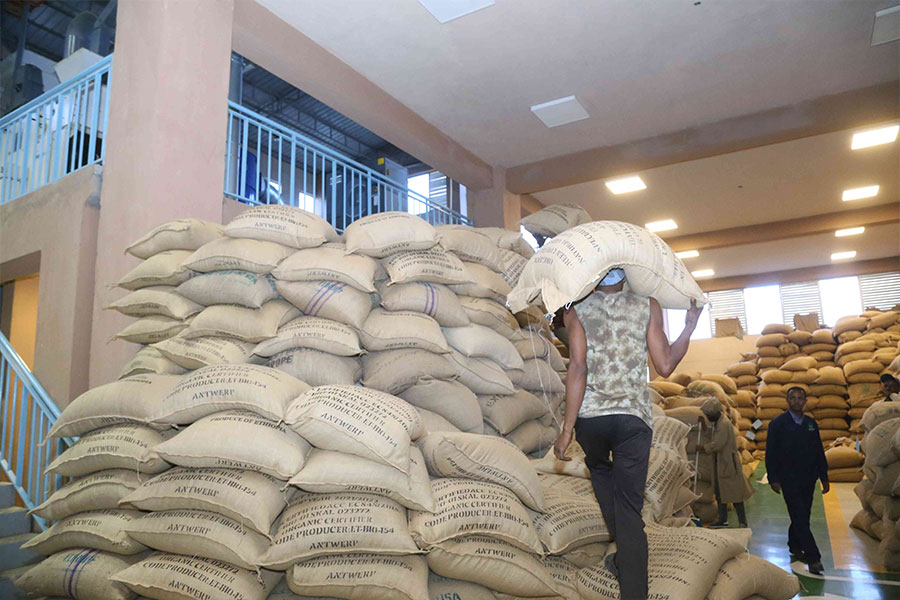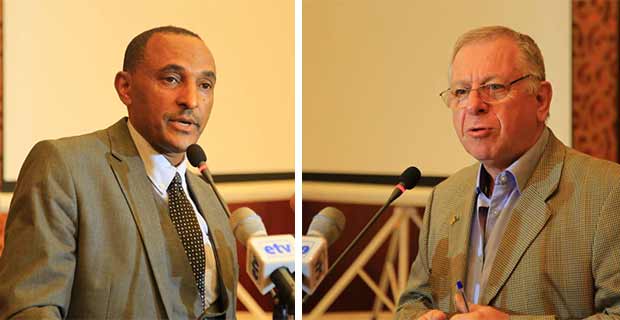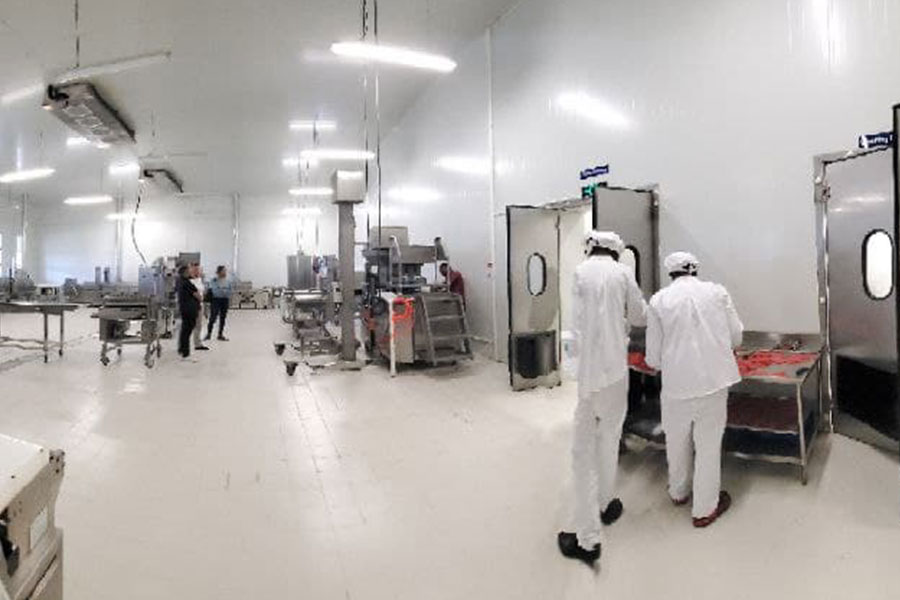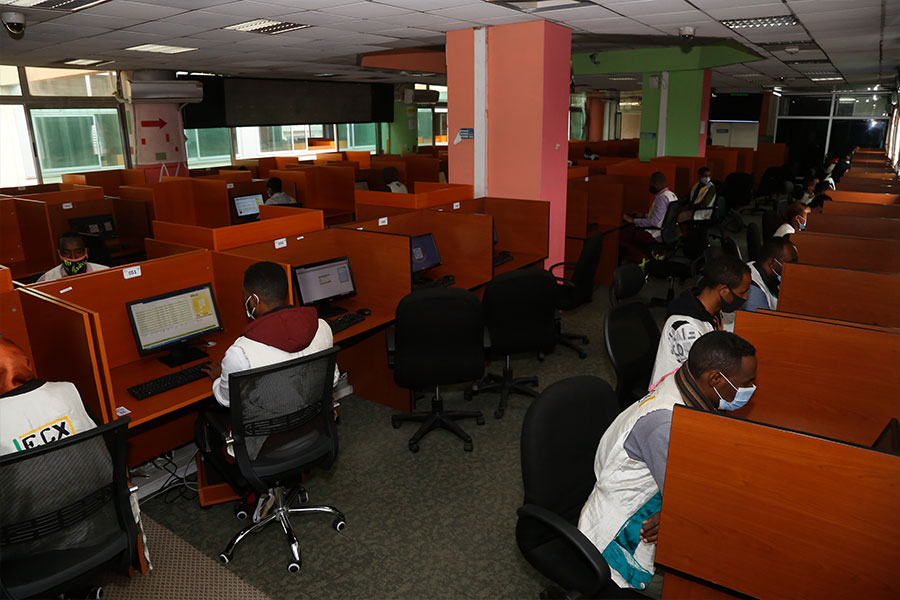
Advertorials | Apr 08,2024
An export coffee preparation facility is being set up in Jimma and West Guji Zone in Oromia Regional State. Constructed by Kerchanshe Trading, one of the largest producers and exporters of coffee in the country, the facilities will be the first of their kind located outside Addis Abeba and Harar. Kerchanshe, which embarked on the project over a year ago, expects to have the facilities functional at the start of the next fiscal year.
The new coffee preparation facilities will be an addition to its three facilities in Addis Abeba. Two of the facilities in Addis Abeba can process up to 30,000tn of coffee annually and have been operational for over five years. The third one, located near Gelan Condominium, is expected to start work shortly, according to Asnake Kassam, quality control & certification director at the company.
The majority of the country's coffee preparation facilities, or industries as they are commonly referred to, are located in or near the capital, which has 105, while Harar has 25.
"The facility in Jimma will be able to serve all the company's western sources of coffee," said Asnake. "Coffee sourced from the south and southwestern parts will be processed at Bule Hora in Guji."
Kerchanshe, which specialises in coffee sourced from Yirgacheffe, Lekempti, Gimbi, Jimma and Sidamo, has finalised the civil construction of both new sites. A milling machine is being installed at the facility in Bule Hora, West Guji, from where the company plans to export coffee through the Port of Mombassa. The milling machine for the site at Jimma is in transit.
Coffee contains up to 30pc waste before it gets to its final stage and this all adds on to the extra cost in logistics, according to Asnake.
"We can avoid these costs, as well as save time and labour in the process," he said.
Assigning representatives from the Customs Commission and the Coffee & Tea Authority, which is responsible for grading, is what remains to be done, according to Hairu Nuru, market information & regulatory director at the Authority.
"The advantages of this will be increased efficiency," he said. "Instead of coming to the capital, the coffee can be exported through ports directly from the facilities."
One of the biggest bottlenecks in the coffee sector is the extraneous chain through which the product passes, explained Hairu.
"When coffee was required to pass through the Ethiopian Commodity Exchange (ECX) system, it entailed an extra 15pc cost," he said. "The construction of the facilities will also be beneficial to other exporters in that area who can gain from using these facilities."
While this is a great initiative, it requires an in-depth study for its success, according to Mesfin Moges, founder and CEO of EtBuna, a coffee sourcing and consulting company.
"There's an established and common route for the export of coffee through Djibouti," he said. "This will have to study the safety systems in place, roads, transport availability, and transiters at the port in Mombassa."
The route from Guji to Mombassa is certainly shorter, but whether the route from Jimma will save substantial costs depends on a number of factors, he added.
"The most important factor is the response of the international market to this change," he said.
The expert also recommended an in-depth analysis of the industry's bottlenecks as multiple factors play a role in the efficiency of coffee exports.
PUBLISHED ON
Dec 19,2020 [ VOL
21 , NO
1077]

Advertorials | Apr 08,2024

Radar | Dec 05,2018

Fortune News | Aug 26,2023

Radar | Oct 30,2021

Radar | Aug 29,2020

Fortune News | Sep 08,2019

Fortune News | Oct 02,2021

Fortune News | Jul 24,2021

Radar | Jan 11,2020

Fortune News | Feb 05,2022

Dec 22 , 2024 . By TIZITA SHEWAFERAW
Charged with transforming colossal state-owned enterprises into modern and competitiv...

Aug 18 , 2024 . By AKSAH ITALO
Although predictable Yonas Zerihun's job in the ride-hailing service is not immune to...

Jul 28 , 2024 . By TIZITA SHEWAFERAW
Unhabitual, perhaps too many, Samuel Gebreyohannes, 38, used to occasionally enjoy a couple of beers at breakfast. However, he recently swit...

Jul 13 , 2024 . By AKSAH ITALO
Investors who rely on tractors, trucks, and field vehicles for commuting, transporting commodities, and f...

Jul 5 , 2025
Six years ago, Ethiopia was the darling of international liberal commentators. A year...

Jun 28 , 2025
Meseret Damtie, the assertive auditor general, has never been shy about naming names...

Jun 21 , 2025
A well-worn adage says, “Budget is not destiny, but it is direction.” Examining t...

Jun 14 , 2025
Yet again, the Horn of Africa is bracing for trouble. A region already frayed by wars...